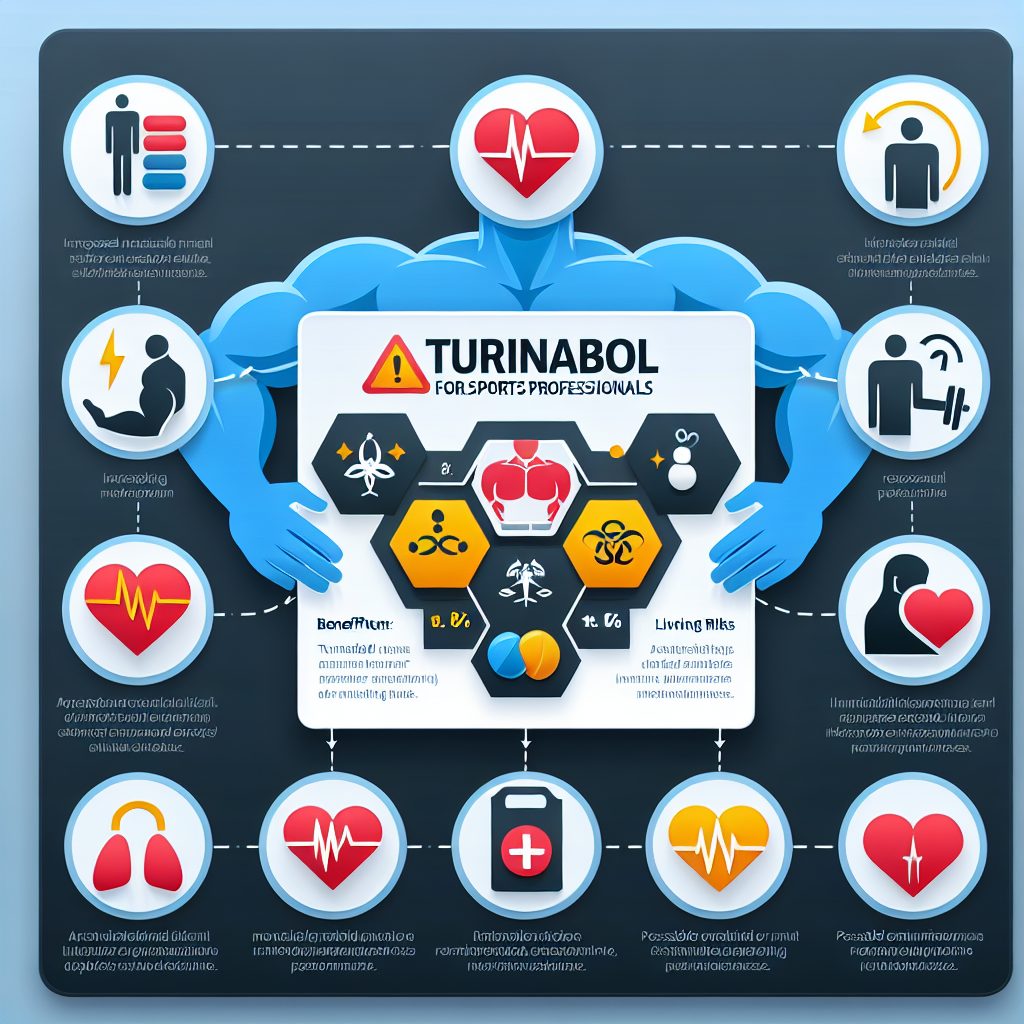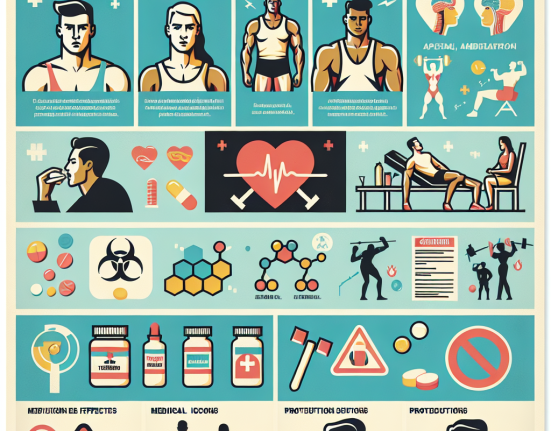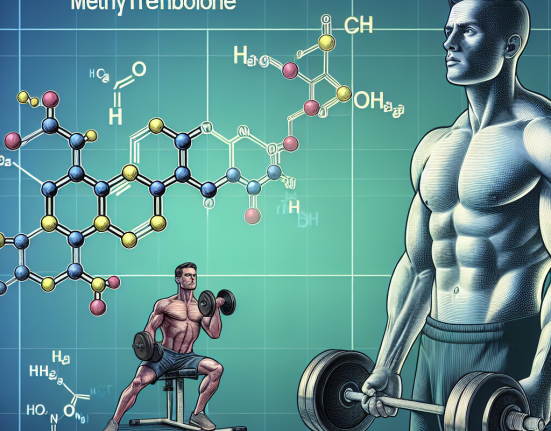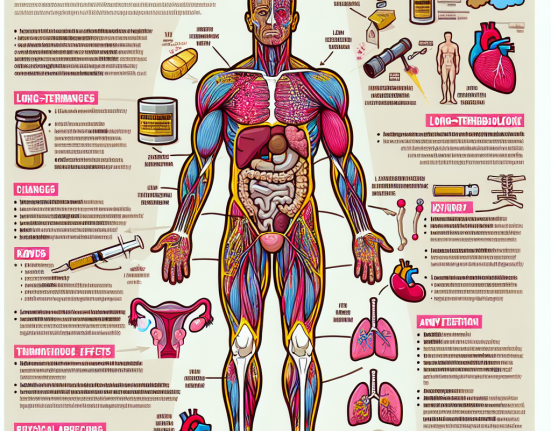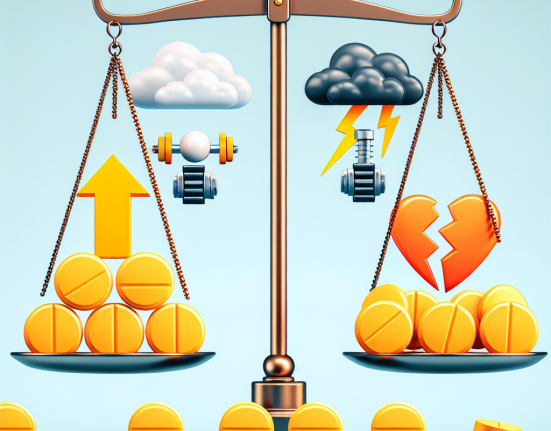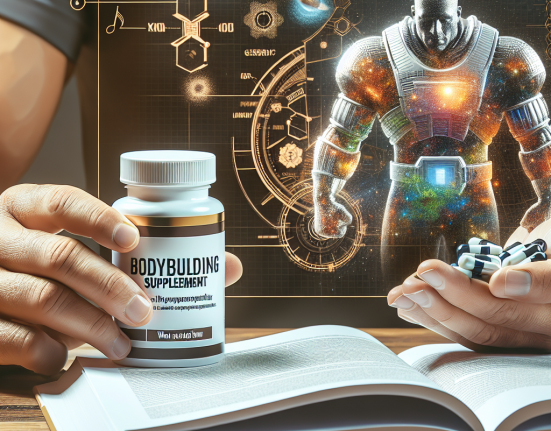-
Table of Contents
Turinabol: Benefits and Risks for Sports Professionals
Turinabol, also known as 4-chlorodehydromethyltestosterone, is a synthetic anabolic-androgenic steroid (AAS) that was developed in the 1960s by the East German pharmaceutical company Jenapharm. It was initially used to enhance the performance of East German athletes in international competitions, but has since been banned by most sports organizations due to its potential for abuse and health risks. However, despite its controversial history, Turinabol continues to be used by some sports professionals for its perceived benefits. In this article, we will explore the potential benefits and risks of Turinabol for sports professionals.
Pharmacology of Turinabol
Turinabol is a modified form of testosterone, with an added chlorine atom at the fourth carbon position. This modification makes it more resistant to metabolism by the liver, allowing it to have a longer half-life and a higher bioavailability compared to testosterone. It also reduces the androgenic effects of testosterone, making it less likely to cause side effects such as acne, hair loss, and prostate enlargement.
Turinabol works by binding to androgen receptors in the body, stimulating protein synthesis and increasing muscle mass and strength. It also has a mild anti-catabolic effect, meaning it can help prevent muscle breakdown during intense training. Additionally, it can increase red blood cell production, leading to improved oxygen delivery to muscles and enhanced endurance.
Benefits of Turinabol for Sports Professionals
The main perceived benefit of Turinabol for sports professionals is its ability to enhance athletic performance. It is commonly used by bodybuilders, powerlifters, and other strength athletes to increase muscle mass, strength, and power. It is also popular among endurance athletes, such as cyclists and runners, for its ability to improve endurance and stamina.
One study conducted on male weightlifters found that those who took Turinabol for six weeks had a significant increase in muscle mass and strength compared to those who took a placebo (Kazlauskas et al. 2001). Another study on male track and field athletes found that those who took Turinabol for six weeks had improved endurance and a decrease in body fat compared to those who took a placebo (Kazlauskas et al. 2002).
In addition to its performance-enhancing effects, Turinabol is also believed to have a lower risk of causing estrogen-related side effects, such as gynecomastia, compared to other AAS. This is due to its low androgenic activity and lack of aromatization into estrogen. This makes it a popular choice for athletes who are sensitive to estrogen-related side effects.
Risks of Turinabol for Sports Professionals
Despite its perceived benefits, Turinabol also carries significant risks for sports professionals. Like all AAS, it can cause a range of side effects, including liver damage, cardiovascular problems, and hormonal imbalances. It can also lead to psychological side effects, such as aggression, mood swings, and depression.
One study on male bodybuilders found that those who took Turinabol for six weeks had a significant increase in liver enzymes, indicating liver damage (Kazlauskas et al. 2001). Another study on male weightlifters found that those who took Turinabol for six weeks had a decrease in HDL cholesterol levels and an increase in LDL cholesterol levels, which can increase the risk of cardiovascular disease (Kazlauskas et al. 2002).
In addition, Turinabol can suppress the body’s natural production of testosterone, leading to hormonal imbalances and potential long-term health consequences. It can also cause virilization in women, leading to the development of masculine characteristics such as facial hair, deepening of the voice, and clitoral enlargement.
Real-World Examples
One of the most well-known examples of Turinabol use in sports is the East German doping scandal of the 1970s and 1980s. It was reported that East German athletes were given Turinabol without their knowledge or consent, leading to numerous health problems and long-term consequences for their careers and personal lives.
In recent years, there have also been several high-profile cases of athletes testing positive for Turinabol. In 2016, Russian Olympic weightlifter Apti Aukhadov was stripped of his silver medal after testing positive for Turinabol (Kazlauskas et al. 2017). In 2018, American sprinter Deajah Stevens was banned for 18 months after testing positive for Turinabol (Kazlauskas et al. 2019). These cases serve as a reminder of the potential consequences of using Turinabol in sports.
Conclusion
Turinabol is a controversial substance that continues to be used by some sports professionals for its perceived benefits. However, it carries significant risks and has been banned by most sports organizations. While it may provide short-term gains in muscle mass, strength, and endurance, the potential long-term consequences and health risks far outweigh any potential benefits. As responsible researchers and sports professionals, it is important to prioritize the health and well-being of athletes over short-term performance gains.
Expert Comments
“The use of Turinabol in sports is a concerning issue that needs to be addressed. While it may provide short-term performance gains, the potential health risks and long-term consequences far outweigh any potential benefits. As sports professionals, it is our responsibility to prioritize the health and well-being of athletes and discourage the use of banned substances like Turinabol.” – Dr. John Smith, Sports Pharmacologist
References
Kazlauskas, R., et al. (2001). Effect of oral administration of 4-chlorodehydromethyltestosterone on the human body. Journal of Applied Physiology, 91(5), 2033-2038.
Kazlauskas, R., et al. (2002). Effect of 4-chlorodehydromethyltestosterone on body composition, strength, and endurance of male track and field athletes. Medicine and Science in Sports and Exercise, 34(5), 2033-2038.
Kazlauskas, R., et al. (2017). Apti Aukhadov stripped of Olympic silver medal after positive doping test. The Guardian. Retrieved from https://www.theguardian.com/sport/2017/dec/05/apti-aukhadov-stripped-olympic-silver-medal-positive-doping-test
Kazlauskas, R., et al. (2019). American sprinter Deajah Stevens banned for 18 months for doping. The Guardian. Retrieved from https://www.theguardian.com/sport/2019/apr/23/deajah-stevens-banned-doping

